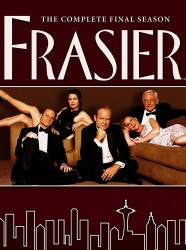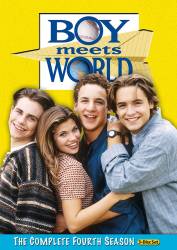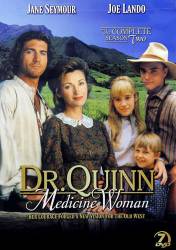
Question: In a vast majority of the episodes, whenever Mulder and Scully investigate some mysterious or paranormal phenomenon, Mulder believes that some unknown force is responsible but Scully always has a rational explanation for what is happening. In other episodes, when Scully herself is caught up in something mysterious, she is the believer but Mulder is the skeptic. In those episodes, why would Mulder be skeptical about an unexplained phenomenon considering that he a was witness to his own sisters abduction and he saw many strange things that defied explanation while working for the F.B.I.?
Answer: A variety of reasons. Just because Scully saw something unusual does not mean that it was. Mulder always needs concrete proof before he'll believe there's some otherworldly explanation for unexplained phenomena. He's too experienced to take a novice's explanation as fact. It is also a plot by device by the writers to switch the tables on the characters to make it more interesting and to let viewers see another side of their relationship.

Question: Counting his role on Cheers, Kesley Grammar has played Fraiser for twenty years. Is this the record for the longest portrayal of a character by a TV actor?
Answer: It equals the record of James Arness of "Gunsmoke" for the actor who's played the same part on TV NOT in a soap opera. If you include soaps there are two main contenders - William Roache, who's been playing Ken Barlow in "Coronation Street" in the UK since 1960. Don Hastings has been playing Robert Hughes in US soap "As the World Turns" since 1960 as well.

Question: Why do Power Rangers series reuse original Sentai fight footages instead of filming new footage?

Janitor Dad - S4-E6
Question: When Chet and Verna are arguing about Chet getting a job, visible in the background is a painting of what I believe is an oak tree on a yellow background. Does anybody know the name and/or artist of this painting? My Grandparents used have a painting similar to it (if not the same one) and it also looks very similar to (and possibly the inspiration for) the cover art for the debut album of the band Days of the New.

Question: This might be a stupid question, but why do all three of the children speak in typical American voices? Wouldn't their speech have a British influence because of their father, and also Niles?
Answer: Children's brains and language skills are still developing at that age and they adapt to the environment they live in. My former boss was born in England and moved to the US at about eight years old. She completely lost her British accent by her teens, even though her parents still spoke as typical English citizens. A Japanese co-worker and his wife, also Japanese, spoke English as their second language. Their two children learned both English and Japanese simultaneously while growing up and spoke each language with the appropriate accent.
Answer: Kids tend to take on the accident of where they live. I once had a British student who lost his accent after a couple of years in the US.
Not just where they live, but also after their peers (who live there, but you know what I mean).
Answer: Not necessarily. Their late mother being American would've probably made the most impact on their speech, considering most kids spend most of their early years more with their mothers than fathers.
Gracie is young enough that she doesn't remember her mother. The episode "I Don't Remember Mama" was about this.

Question: In the final few scenes of this story, DS Beck has abducted David Harvey and has taken him to the top of a tower block in order that they can both leap off. Fitz and Penhaligon race to the top to try to talk Beck out of it. In the original broadcast on UK TV (1995), Fitz speaks with Beck at length on the rooftop (as in the novel), but in all repeats and subsequent VHS/DVD releases this scene is missing and has never been seen since. Now, Fitz only manages to reach the rooftop as Penhaligon is looking over the side after Beck has jumped pulling Harvey with him. Is this scene un-cut on the Region 1 DVD of this show? (I don't want to buy it just to find the same cut version again). (02:25:00 - 02:26:45)
Chosen answer: I still own on tape the 1995 UK TV broadcast version of that episode, and it definitely doesn't have Fitz talking Beck out of jumping. It is definitely in the novel adaptation of 'Brotherly Love', but as far as I know never made it to the final cut of the TV version. I'm presuming therefore the scene wouldn't exist on the Region 1 DVD. The only TV version I have ever known to be of that scene is Fitz just turning up after Beck has jumped and then comforting Penhaligon. A few scenes did get lost from the original broadcast to the subsequent DVD/VHS releases though, but as far as I'm aware that was never one of them.

Question: Whenever Clark uses his X-ray vision, why does he lower his glasses? Lowering them when he uses heat vision is understandable but there's no need to do it when Clark uses X-ray vision.
Answer: I don't recall if it was ever mentioned in an episode, but it's possible that the frames and/or lenses of his glasses are lined with lead, the one compound his X-ray vision can't penetrate. Speculative, of course, but it likely would have been done at a point in his youth when he wasn't in complete control of his powers.

Question: When Matthew goes against Dr. Quinn's suggestion that he needs to rest and heal, and hitches his curse to leave, the sign above him says "Coopering." Shouldn't that be "Coppering"?
Answer: A Cooper was someone who made various things out of wood including wooden caskets and even barrels.

Answer: As he stated many times throughout the series, Mulder needed Scully to be sober and skeptical. Whenever Scully's skepticism wavered and she started questioning her own rationality, Mulder would try to restore her sense of skepticism, because he needed her to be clear-thinking.
Charles Austin Miller